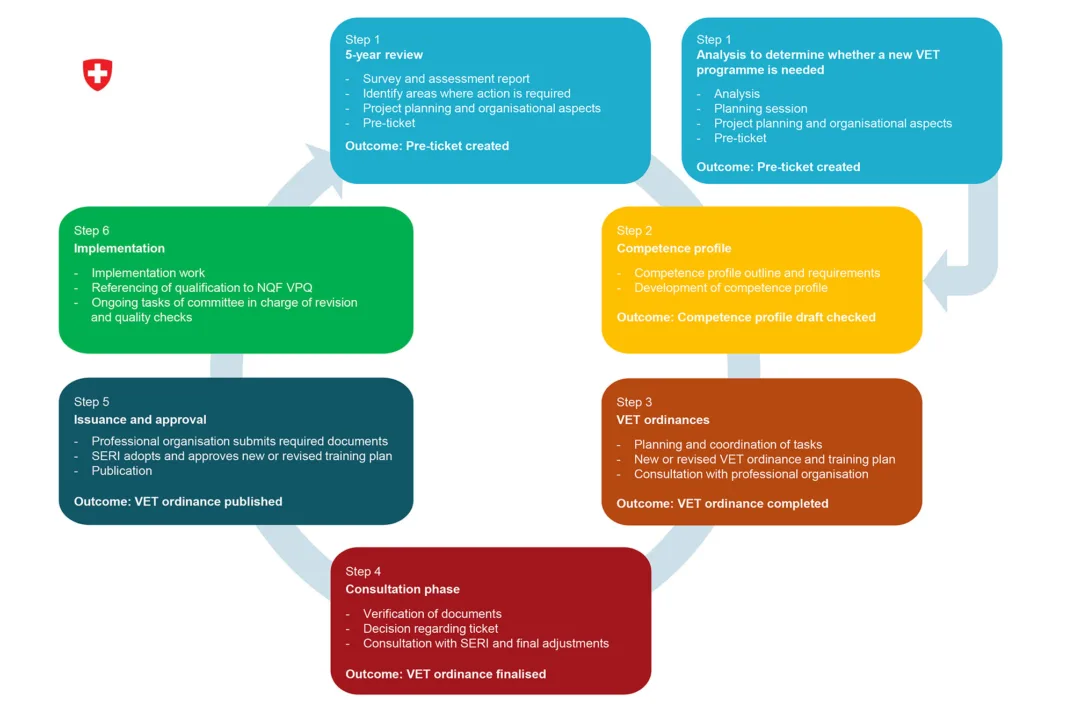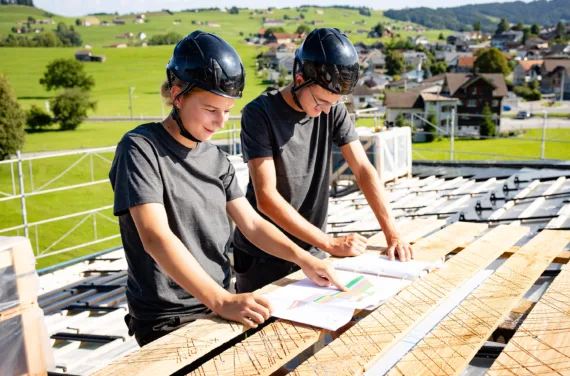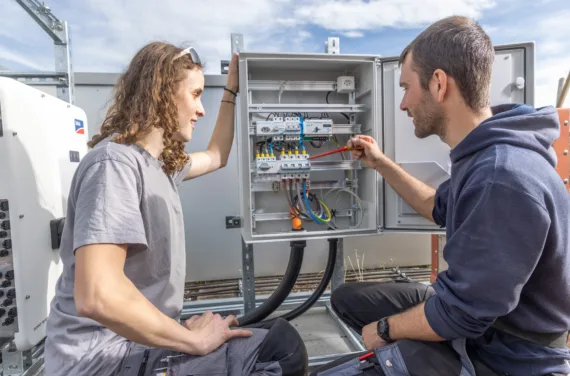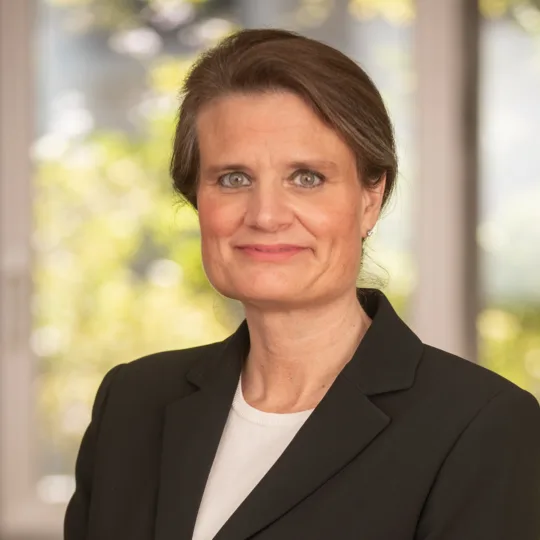How a new occupation is created: examples from the solar energy sector
In 2023, SERI approved and issued VET ordinances and training plans for a total of 50 new or revised occupations. Here we examine two new occupations relating to solar panel installation, which are intended to further the aims of sustainability and environmental protection.

In Switzerland, it is the private sector that initiates the process of creating, reviewing and revising training programmes for upper-secondary level vocational education and training (VET). Every five years, these VET programmes are reviewed in light of economic, technological, environmental and didactic developments and then adapted to suit the needs of the labour market. The same process applies to training programmes for tertiary-level professional education.
Creation-review-revision cycle – from analysis to implementation
Professional organisations establish the training content and qualification procedures for their occupations. The process starts when a given professional organisation wishes to develop a new two-year programme for the Federal VET Certificate or a three- or four-year programme for the Federal VET Diploma. This professional organisation will then steward the creation project and work closely with the two other system partners, namely the Confederation and the cantons. Before work can begin, fundamental questions need to be clarified: Who will steward the new VET programme? Has the occupational profile been decided? Has labour market demand been ascertained? Are there enough host companies willing to provide workplace training and potentially hire graduates?
Once this analytical work has been done, the professional organisation wishing to steward the creation project will submit a pre-ticket and funding application to SERI. If the pre-ticket is issued, then SERI has effectively given the green light and work can proceed. At this point, SERI will handle coordination among the three system partners.



Legally required tools
Once SERI has issued the pre-ticket, a competence profile will be drawn up for each occupation. This document presents the occupational profile, provides an overview of the professional competences to be acquired and assigns the training programme to a given a level within the education system. The competence profile serves as an outline for the VET ordinance and training plan. Each VET ordinance contains the regulatory requirements for the given occupation.
After examining and, if necessary, adapting these documents, SERI will consult federal offices, cantonal authorities and interested parties. Based on the feedback from consultation, SERI will then revise the VET ordinance and training plan as needed. Once this has been done, the cantons and professional organisation will meet to iron out any differences. In the final stage, SERI issues the VET ordinance and approves the training plan.
Successful collaboration despite a much tighter deadline
Based on past experience, creating a training programme for a new occupation generally takes around three years. It is indeed possible to accelerate this process if economic, environmental or societal changes require such action. However, it places an additional burden on the three partners within the Swiss VPET system. This was the case, for example, with the new two-year and three-year training programmes for solar panel installers. Fredy Fritsche, who heads the Apprenticeship Monitoring Section of the Canton of St. Gallen’s Office of Vocational Education and Training, confirms that the outcome was a success: ‘We managed to include the new occupations in an existing occupational field for which stewardship and structures were already in place and for which the Confederation, the cantons and the professional organisation were already working together. This certainly played in our favour. Another success factor was the ability to use existing infrastructures for classroom instruction at vocational schools and branch courses.’
The cantons' responsibilities include supervising classroom instruction at vocational schools, organising qualification procedures and contributing to branch courses. Collaboration between the Confederation, the cantons and the professional organisation stewarding the project is essential for education and training to take place smoothly at all three learning locations (i.e. vocational school, host company and branch training centres).

Fredy Fritsche heads the Apprenticeship Monitoring Section of the Canton of St. Gallen’s Office of Vocational Education and Training.
New occupations also create continuing education and training opportunities
The demand for solar energy professionals has long been recognised, explains Beat Hanselmann from the Polybau Training Centre: ‘Several surveys were conducted in this sector and on the labour market to ascertain needs and identify possible training content. The feedback from these surveys confirmed that the solar energy sector wants and needs new training programmes like the ones proposed for the Federal VET Certificate and Federal VET Diploma. The groundwork for these two occupations was thus laid and the creation project could move forward.’ The project steward held a planning meeting with Swissolar, SERI and the cantons to discuss issues such as the competence profile, the need for skilled labour, the willingness of host companies to provide workplace training and characteristics that distinguish the new occupations from other occupations and sectors. Organisational aspects such as project stewardship and the funding needs were also clarified.
According to Beat Hanselmann, the solar energy sector should see 80 learners starting the new three-year Federal VET Diploma programme and 30 learners starting the two-year Federal VET Certificate programme in the 2024/25 school year. This estimate places enrolment in the new occupations on par with that of the Federal VET Diploma programme for roofers, from the same occupational field (building envelopes). The new occupations are likely to not only have an impact on supply and demand dynamics in vocational education and training, but are also expected to expand the range of continuing education and training opportunities. Hanselmann explains: 'Demand for non-formal education has risen significantly since the new VET programmes in the solar energy sector became known. As a result, training options for new entrants and career changers are now being developed as we speak. In addition, preparatory training for project managers specialising in solar panel installation has been available at professional education level for the past ten years.

Beat Hanselmann is Director of Training at the Polybau Training Centre.
Photo: Polybau Training Centre
Contact
Author



